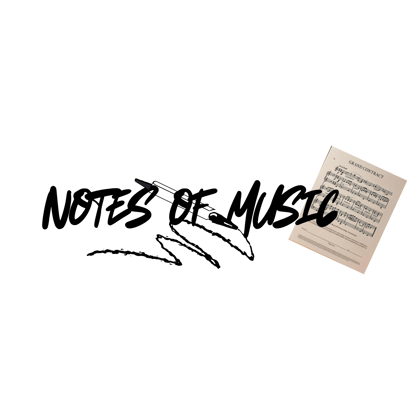Understanding Mechanical Royalties: What They Are and How to Collect Them
Make sure you are getting paid from your streams, digital downloads, and more! This blog is dedicated to mechanical royalties and how they are collected.
OWNERSHIP + ROYALTIES + GETTING PAID
4/23/20254 min read


What Are Mechanical Royalties?
Mechanical royalties are a crucial aspect of thriving financially as a music professional. They represent the payments owed to songwriters and publishers whenever their recorded compositions are reproduced physically or digitally, as well as if they are streamed. Sales of CDs, vinyl, and digital downloads should be contributing to your pockets in this way. Only a portion of the sale is allocated to the mechanical royalty, as there are other royalties, such as performance royalties, that ensure that those who created the music are compensated for the public exploitation of their work, but let's zero in on this first.
How Are Mechanical Royalties Calculated?
The calculation of mechanical royalties is generally based on a set rate established by laws and agreements within the music industry. In the United States, the current statutory rate set by the Copyright Royalty Board, is 12.4 cents per song for physical and permanent digital copies, or 2.38 cents per minute of playing time, whichever is greater.
The rate is subject to change for different situations and agreements; be sure to read or have an attorney review your contracts if you are looking to sign with a label. For example, if an album contains multiple songs, the royalties are calculated based on the total number of tracks. If you are a signed artist, make sure you check for a track cap clause a.k.a. controlled composition clause, in your contract so you can know the limitations on track numbers eligible for the standard statutory rate for mechanical royalties. Additionally, royalties can vary by country and depend on specific agreements made by music publishers.
How Do collaborations impact mechanical royalties?
If you are not the sole author of the work, it's important to record everyone involved in the creation and ownership of a work.
Split Agreements
Split agreements are legal contracts, commonly used by lyricists, composers, and performing artists, identifying roles, ownership, and intellectual property rights between the collaborators. When it comes to mechanical royalties, split agreements usually allocate the royalty splits based on the contributions and negotiations of the collaborators over two things, the music (50%) and the lyrics (50%). Ownership of the music and lyrics is decided based on how many people contributed and sometimes the significance of what they contributed.
For example, on a song with 2 producers and 1 singer-songwriter and no publishing companies, the producers decide to split the ownership of the music while the singer-songwriter was the sole-author of the lyrics - the split is 25/25/50. The split agreed upon in the split agreement is used for mechanical royalties amongst other royalties.
Visit our blog on split agreements, to find more insight and tips on how to fill them out as well as our 99¢ split-sheet template!
How Mechanical Royalties Are collected
The Mechanical licensing collective (THE MLC) - for the u.S. only
After the Music Modernization Act (MMA) was passed in 2018, the responsibility of mechanical royalty collection shifted to The Mechanical Licensing Collective. The MLC is a non-profit organization that provides blanket licenses consisting of songs registered with them, to Digital Service Providers (DSPs) in the U.S. including streaming services, and collects mechanical royalties from these licenses. Then, according to their 'how it works' page, after they calculate streams and downloads for songs registered with them, they pay "music publishers and administrators; ex-U.S. collective management organizations (CMOs); and self-administered songwriters, composers, and lyricists" mechanical royalties they are owed monthly. If you are not in the U.S., you'll need to register with the Mechanical Rights Organization (MRO), in your territory.
You can sign up with The MLC directly however, there are instances where you don't need to be or can't sign up with the MLC to collect mechanical royalties, they are listed below.
Online Music Distribution Platforms: Companies like CD Baby, TuneCore, and Distrokid also provide revenue tracking and collection services for mechanical royalties. These platforms ensure artists are informed about their sales and earnings, making it easier to manage their financial interests.
Music Publishing Companies: One of the most effective ways to collect mechanical royalties is through a music publishing company. These companies are equipped to manage publishing rights and can efficiently collect royalties on behalf of artists.
Publishing Administrators:
An alternative to the traditional publishing deal, publishing administrators like Songtrust, make sure artists get paid without claiming ownership, by registering their songs with PROs and MROs. In exchange for their services of registration and royalty collection, publishing administrators usually have a service fee.
What happens to uncollected Mechanical Royalties?
Artists need to be sure to have a way to collect mechanical royalties. According to the MLC, unclaimed or unmatched mechanical royalties are held for a minimum of 3 years. If the MLC still can't find the rightful owner after extensive effort, the remaining unclaimed royalties go to music publishers and other self-administered songwriters.
CONCLUSION
Understanding and collecting mechanical royalties is vital for any artist or songwriter seeking to make a living from their music. By being proactive in how they manage their rights and royalties, they can ensure fair compensation for their talents and hard work. Whether through a music publishing company or an online distribution company, the options are available to make the most of mechanical royalties in today’s music landscape.


Notes of Music
Empowering artists with essential music business advice to get them heard and paid.
Resources
Support
info@notesofmusic.online
© 2025. All rights reserved.
